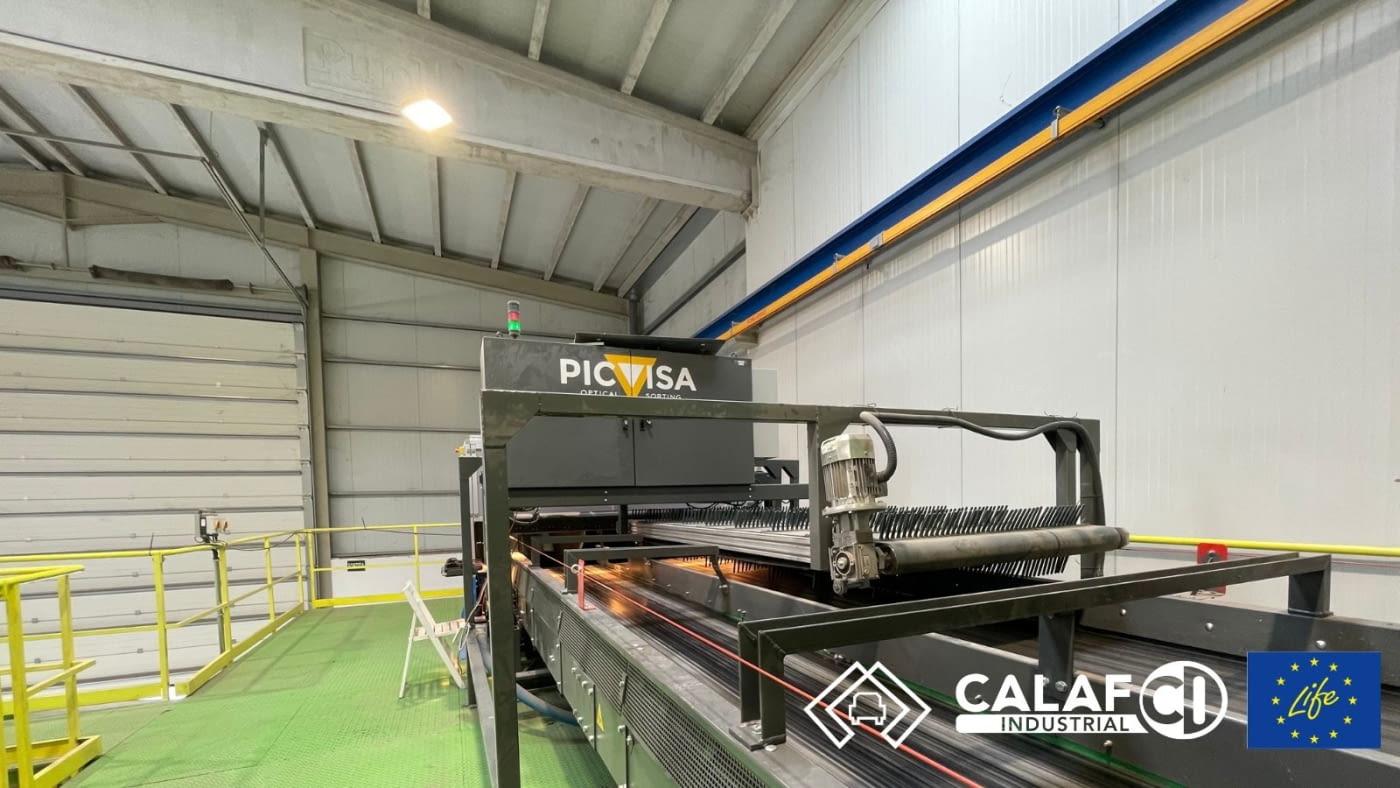
The LIFE PST SORT project takes place in a European industrial context that has not solved the recycling of materials that make up about a quarter of the weight of each vehicle. Some 40 million end-of-life vehicles (ELVs) are treated worldwide each year, with an average weight of 1.05 tonnes per vehicle, of which approximately 22% corresponds to after-shredding residues (ASR). In Europe, after the de-pollution and dismantling of end-of-life vehicles, 6 million vehicles are shredded per year. This represents 1,760,000 t/year of shredding rejects (ASR) which are usually sent to landfill or incinerated. The 13% of Europe's total ASR is produced in Spain.
CALAF - PICVISA has designed and built in Calaf (Barcelona, Spain) a demonstration plant for automated sorting of ELV residues. The plant covers an area of 1,000 m2 and is equipped with machine vision and artificial intelligence. The facility can treat between 22,000 and 35,000 tonnes of ASR per year, recovering two-thirds of the incoming stream, which would otherwise be almost entirely landfilled.
The solution proposed herein may also treat other industrial shredded materials, such as waste electrical and electronic equipment (WEEE) and glass ("glass cullet"), as well as a wide range of industrial and municipal solid waste.
The demonstration plant provides for waste sorting and recovery testing on an industrial scale, attracting the interest of recyclers, waste management companies, local authorities and research institutes.
The project receives a grant from the European Union's LIFE programme (No. LIFE17-ENV/ES/000168), and is currently undergoing demonstrations with different feedstocks as well as technical, socio-economic and environmental evaluation works. In this last aspect, the LIFE PST-SORT solution is framed within the development of European Circular Economy infrastructures and provides sustainability increasing solutions to the automotive industry.


